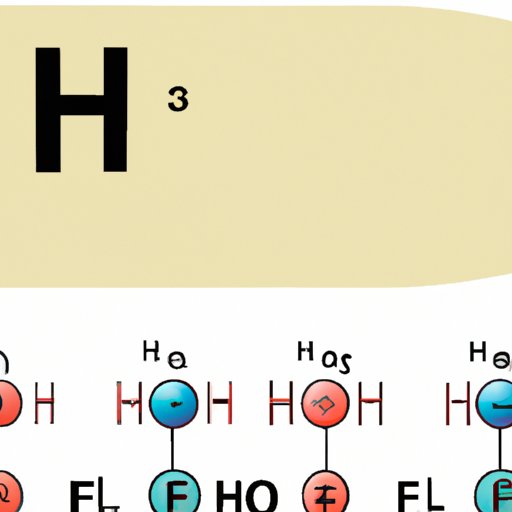Introduction
Chemistry is often referred to as the “central science” due to its ability to connect and interact with other scientific disciplines. From mathematics and biology to physics and environmental science, chemistry plays an essential role in understanding and utilizing the knowledge of these fields. In this article, we will explore why chemistry is considered a central science, outlining its importance in everyday life, core principles, major contributions to modern science, application in various fields, and impact on the environment.

Exploring the Intersection of Chemistry and Other Scientific Disciplines
At its core, chemistry is the study of matter and its interactions with energy. As such, it has a unique ability to bridge the gap between different scientific disciplines. For example, mathematics provides the tools to interpret chemical data and calculate the outcomes of chemical reactions. Physics explains the behavior of molecules and how they interact with one another. Biology utilizes chemistry to understand the structure and function of living organisms. And, as we will discuss later, chemistry is essential for understanding the impact of human activities on the environment.

Outlining the Importance of Chemistry in Everyday Life
Chemistry is all around us in our everyday lives. From the food we eat to the medicines we take, chemistry plays an important role in keeping us healthy. Food science, for example, relies heavily on chemistry to ensure that food products are safe to consume and have the right flavor, texture, and nutritional content. Similarly, pharmaceuticals are designed and developed using chemical processes to create drugs that are effective in treating various illnesses and diseases.
In addition, chemistry is also essential for protecting the environment. It helps us understand how pollutants interact with the atmosphere and how to best manage natural resources. Without the study of chemistry, it would be difficult to understand the impacts of climate change and devise strategies for mitigating its effects.

Examining the Core Principles of Chemistry
The core principles of chemistry are based on the understanding of atomic structure, chemical reactions, and chemical equilibrium. Atoms are the building blocks of all matter and can be combined in different ways to form different compounds. Chemical reactions involve the rearrangement of atoms to create new substances, while chemical equilibrium describes the balance of reactants and products in a given reaction.
Investigating the Major Contributions of Chemistry to Modern Science
As mentioned earlier, chemistry has been instrumental in advancing our understanding of many scientific disciplines. But chemistry has also made major contributions to modern science in its own right. Synthetic chemistry, for example, has enabled researchers to create complex molecules that cannot be found in nature. This has opened up new possibilities for drug development and materials science.
Green chemistry is another area of research that has become increasingly important. It focuses on creating safer and more sustainable chemical processes that minimize waste and reduce environmental impacts. Nanotechnology is yet another field in which chemistry plays a key role, allowing scientists to manipulate matter on the atomic and molecular level to create novel materials and devices.
Exploring the Application of Chemistry in a Variety of Fields
The applications of chemistry are vast and varied. In medicine, chemistry is used to develop new treatments and medications, diagnose diseases, and analyze biological samples. In agriculture, it is used to improve crop yields, develop pest control methods, and create fertilizers. In manufacturing, chemistry is used to produce materials and components for a variety of products.
Analyzing the Role of Chemistry in the Advancement of Technology
In recent years, chemistry has played an important role in advancing technology. Catalysts, for instance, are used to speed up chemical reactions, making them more efficient and cost-effective. Energy storage technologies, such as batteries and fuel cells, rely on chemical processes to store and release energy. And drug development requires the use of advanced chemical techniques to create new medicines.

Evaluating the Impact of Chemistry on the Environment
Chemistry is also essential for understanding and protecting the environment. It enables us to identify and measure pollutants in the air and water, and develop strategies for controlling them. It also helps us to better manage natural resources, such as forests and fisheries, by providing insight into their sustainability. Finally, chemistry is used to promote sustainable practices, such as recycling and renewable energy, which can help reduce our environmental footprint.
Conclusion
In conclusion, chemistry is a central science due to its ability to intersect with other disciplines and its importance in everyday life. Its core principles provide the foundation for understanding the physical world, while its major contributions to modern science have enabled us to make advances in medicine, agriculture, and manufacturing. Furthermore, chemistry plays an important role in advancing technology and protecting the environment. It is clear that chemistry is essential for understanding and improving our world.
(Note: Is this article not meeting your expectations? Do you have knowledge or insights to share? Unlock new opportunities and expand your reach by joining our authors team. Click Registration to join us and share your expertise with our readers.)
